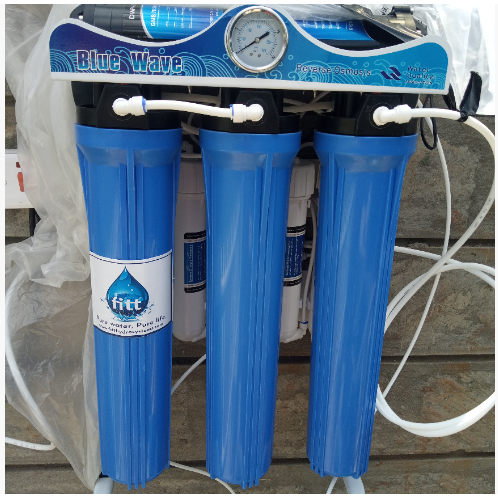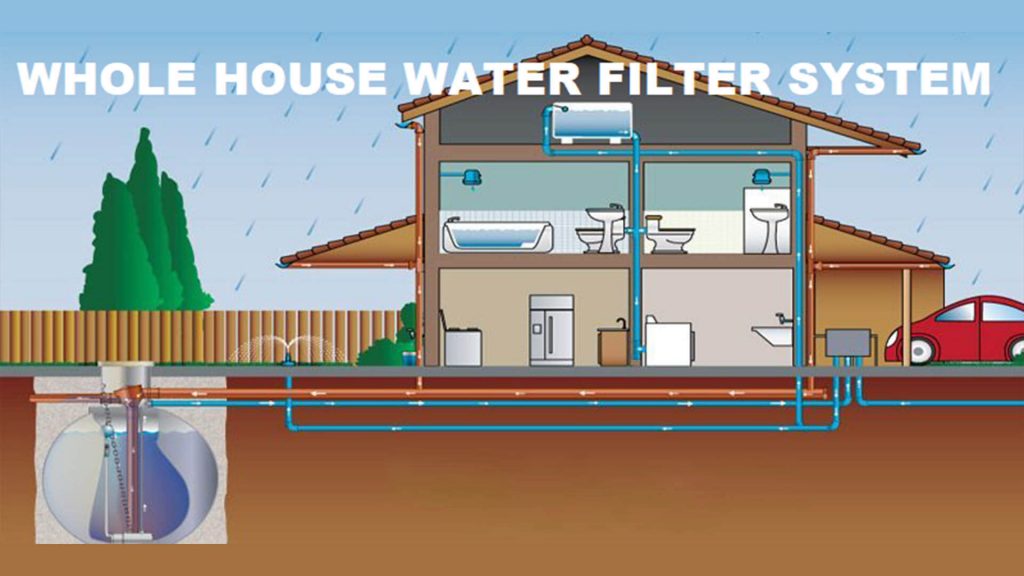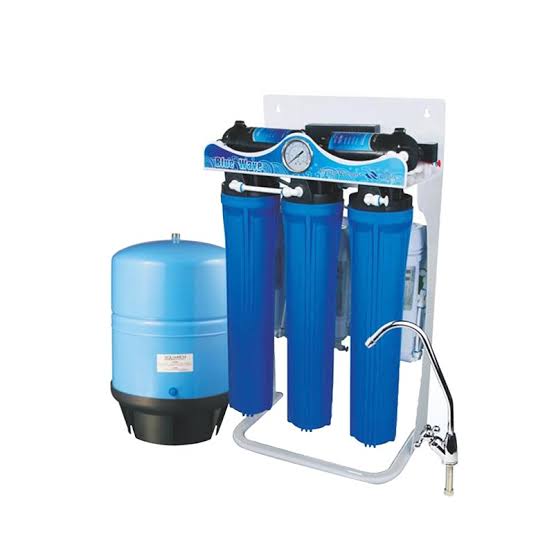
Wells and tap water can contain many contaminants. There are many water filtration options for treating incoming water, but it may be better to use a household water filtration system to get clear filtered water as soon as you enter the household plumbing system.
The best household water purifiers are available in one-step, two-step, or three-step options, and filtration efficiency increases as each step is added. These systems can also include water softeners to reduce hard metals. Check out some of the top products on the market, paying attention to the important considerations in the next section.
Types of water purifiers for the entire house
There are different types of filters in home-wide systems, such as one-, two-, or three-stage cartridge filters and reverse osmosis systems. These filters remove unnatural tastes, odors and fogging.

Cartridge Whole-House Water Filters
These water filters use replaceable cartridges to remove contaminants in the 0.04 to 500 micron range. The cartridge can contain deposit filters, heavy metal filters, organic chemical filters, etc. Depending on the needs of the home, the user can choose the best cartridge for the filter. Cartridges should be replaced every 3 months to 1 year.
One-stage household water purifiers typically have a single filter tank fitted with a precipitate filter cartridge. These are the most basic water filtration systems in the home, but can also be used in combination with water softeners to reduce heavy metals in the water.
The two-stage household water purifier has two filter tanks. The type of contaminants filtered from the water depends on the type of filter cartridge used in each tank, but these systems are typically configured to filter deposits, chlorine, dirt, sand and rust. I am.
The 3 stage water purifier requires a lot of space to install, but it has 3 filter tanks, each equipped with different types of filters, which are difficult to remove organics, pesticides, chlorine and unnatural taste. Can remove odors, metals, algae, microorganisms, iron, lead, dirt, sand, rust and so on. These are the most effective cartridge filter options.
Reverse Osmosis Whole-House Water Filters
This type of filter is more effective than the cartridge system and can remove small particles of 0.0001 micron. These systems remove all organic molecules, viruses, and most minerals to produce pure filtered water.

What to Consider When Choosing the Best Whole-House Water Filter
Before choosing a filtration system, consider some important factors that will help you make the best choice, such as pollutant type, flow rate, and installation requirements. Understanding these characteristics will make it easier to determine which option is the best water filter for your home.


Types of pollutants
Various pollutants can affect the water supply that flows from both tap water and well water. Common pollutants include disinfectants, deposits, microorganisms, heavy metals and organic chemicals. The household water filtration system is available in one-step, two-step, or three-step options.
The three-stage filtration system removes most pollutants to improve water quality and make it safer to use, but can check the national drinking water database edited by the Environmental Working Group to affect water. It is advisable to identify possible contaminants. The following is a detailed list of possible contaminants:
chlorine, chloramine, fluoride, chloroform, bromodioxide, dibromochloromethane, uranium, radium, strontium-90, benzene, 1,2,3-trichloropropane, 1 , 4-Dioxane, estrogen, precipitates, bacteria, viruses, parasites, iron, lead, nitrates, nitrites, arsenic, antimony, cadmium, chromium, copper, lead, selenium, pesticides, herbicides, pesticides.
Water flow
The flow rate of water in a household water purifier determines the maximum amount of water that can pass through the filter in a particular time period. This is usually measured in liters per minute. House-wide water purifiers must have a water flow rate high enough to adequately supply large appliances such as showers and dishwashers with an average flow rate of approximately 20 liters per minute. To meet the needs of the entire home, most home-wide water filtration systems have high water flow rates of 40-100 liters per minute, while some systems have lower and higher flow rates.
Installation and maintenance
Installing a water filtration system for the entire home is not as easy as installing a faucet filter. Water needs to be stopped and drains drained throughout the house, and users usually need to cut the water pipes and install a set of suitable equipment for the filter. If you have no experience with plumbing work such as cutting or soldering new plumbing fixtures, we recommend installing the water purifier with a professional plumber or water purifier installation company. With the
filter installed, the life of the cartridge will average from 3 months to 1 year, depending on the amount of water used, the quality of the water and the type of filter. Replacing the cartridge is not an issue for most home-wide water purifiers. Stop the water, drain the line, unscrew the filter tank and remove the old cartridge. Insert a new cartridge and screw it into the filter tank to refill the water supply system.
Softening Function
Some household water purifiers may use heavy metal cartridges to reduce the presence of calcium, magnesium and other minerals, but most products have precipitate filter cartridges or biological or or Comes with a cartridge designed to filter out chemical contaminants. If you encounter hard water at home, it is wise to invest in a combination of water purifiers and fabric softeners throughout your home. This ensures that the water is not only properly filtered, but also treated with salt molecules that bind to the hard metals and deactivate them. Removing these minerals from hard water is essential to maintaining the durability of pipes, faucets and hot water tanks. Users who do not want to add salt to the entire home filtration system can get a salt-free softener that coats carbide particles to prevent them from adhering to the plumbing infrastructure.
Follow us on Facebook

